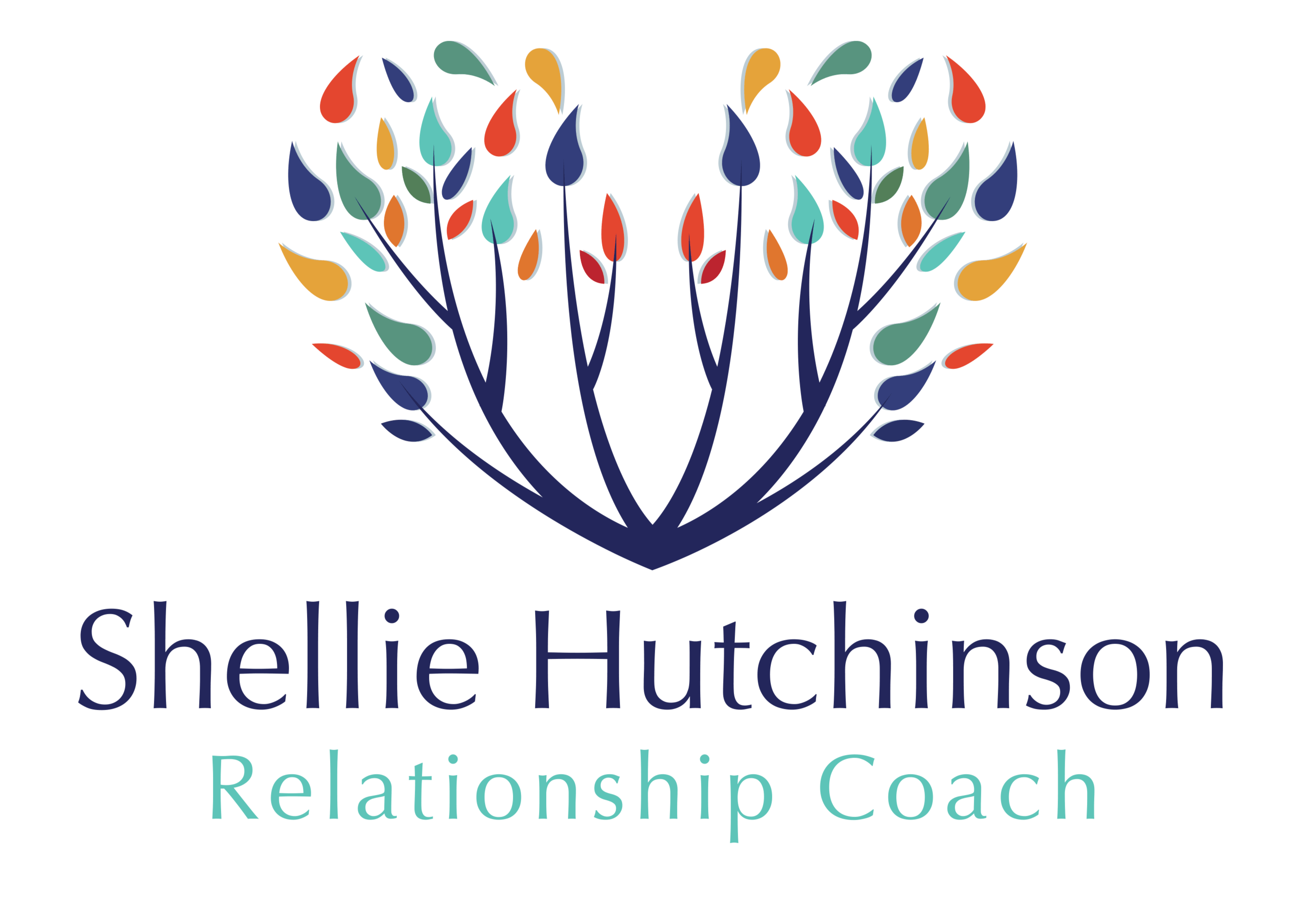
Here's a scenario: a couple is in therapy and spouse one is sharing feelings of frustration, resentment, and exhaustion due to having too much on their plate. They explain that they get little or no help from their partner with the day to day management of the kids and the home. Their experience is that their spouse rarely, or even never, thinks about, plans, or implements the day to day tasks required to run a household.
At its core, mental load refers to the cognitive effort and planning required to manage household tasks and responsibilities. It includes the management, organization, and anticipation of needs within the household. It's the invisible work that goes into remembering to buy groceries, scheduling doctor’s appointments, plan meals, or ensure that school forms are completed on time. It also includes things like the management of home maintenance, home repairs, or ensuring bills are paid on time,
In my work with couples, I have certainly encountered cases in which there exists a true imbalance in mental load, as well as physical load for that matter. When this is the case, it is often a complicated situation, requiring thoughtful care. More often than not, however, when a spouse or partner expresses their frustration about carrying too much of the mental load, that spouse is actually contributing to the imbalance.
And here's why. Most people have learned about mental load through social media. Social media paints the concept of mental load as extremely simple, with little nuance. In reality, it's a complicated issue. When it comes up in therapy, it requires careful assessment. Here are the main things I'm curious about when working with a couple in regards to mental load:
- Are either of them prone to anxiety? If so, when do symptoms arise? A person experiencing anxiety might prioritize a task that their partner never worries about. The task may not be that important actually, but it feels important to one (because of anxiety) and not the other. Or it may be an important task, but it causes anxiety in one (or both) so it's avoided.
- How is task tolerance showing up? When it comes to task completion, does one prefer to complete the task as soon as possible, while the other tends to wait until the last minute? This dynamic can often cause an ineffective relational cycle in which one spouse or partner is never given the chance to complete the task because the other has difficulty tolerating their timing.
- Is perfectionism or attempts at control at play? Are expectations for task management realistic? Is one spouse often critical of how the other handles things? Or do they have little tolerance for mistakes made by their partner? This dynamic creates task avoidance. Why try if you'll never do it right in their eyes anyway? Often times, the spouse is actually showing up in an equitable way, but the other spouse is placing blame to avoid their own discomforts.
- What does work look like for the couple? Who's working in the home, out of the home? How many hours? How does the family interact when everyone is home? Do either or both travel for work, work night shifts, etc.?
When an individual misunderstands what true mental load looks like, he or she might inadvertently use the concept of mental load as leverage in the relationship. Instead of fostering an environment of cooperation and mutual respect, a cycle of blame and avoidance is created, leaving the true relational issues unresolved.
So, yes, on one side of the coin there exists a true imbalance of the mental load and one partner or spouse is paying a heavy price. But on the other side of that coin, is a poor replica. It may appear to be an imbalance, but when looked at closely, it just isn't the real thing. A true imbalance cannot exist when both are contributing to its cause.
By recognizing and addressing the deeper issues—anxiety, control needs, or different levels of tolerance—couples can collaboratively find solutions that allow both individuals to feel heard, understood, and valued. Engaging in discussions without pointing fingers fosters a healthy partnership where mental load becomes a shared, rather than isolated, experience.
While mental load is an essential concept for identifying unseen labor in relationships, it should never be an excuse to ignore underlying personal challenges, or used to control power dynamics within the relationship. Understanding and properly addressing mental load can lead to deeper connection and understanding, allowing relationships to flourish in a healthy, balanced, and equitable way.
*Remember, when learning about mental health on social media, check your source and do your own research. Just because it's posted, doesn't mean it's an accurate or complete explanation, even if it's well-intentioned.

It’s November, 2019 and the Florida High School Marching Band State Championship is in full swing. Like many states, high school marching band in Florida is a big deal. And if you’ve ever seen a marching band competition awards ceremony, you’ll understand when I say it’s impressive, surprisingly so.
At the end of the final day of competition, the students enter the stadium in serious fashion. They line up on the field in tightly packed formation, in their various class sizes, based on school student population. There are a few class sizes, so several bands are lined up from one end zone to the other. The kids remain in formation throughout the entire ceremony, not breaking formation until all of the winners, in every class, are announced. Then, these hard-working, talented teenagers break formation to celebrate or lament, whichever the case may be.
On that day in 2019, however, something unexpected happened. The awards ceremony began, and the third place winner, in the smallest class, was announced. The spectators clapped and cheered, and a celebratory firework was released into the night sky. The 2nd place winner was announced, more clapping and cheering, another firework went off.
But then the ceremony paused. Adults were running from the sidelines towards one of the largest bands on the field. Parents in the bleachers around us were standing up, trying to get someone’s attention, yelling, “Stop the fireworks!”. Some parents were rushing down the bleachers towards the field. From our vantage point, I couldn’t tell what was happening.
Then realization struck. The adults were rushing to the Marjory Stoneman Douglas High School Marching Band from Parkland, FL. Kids in this band were being triggered by the fireworks.
Nine months earlier, on February 14, 2018, 14 students and three staff members at Marjory Stoneman Douglas High School were killed in what remains the deadliest high school shooting in U.S. history. Seventeen additional people were injured that day.
Later that night, our son, whose band was positioned next to the Marjory Douglas Stoneman band, described what he witnessed when the first firework went off - kids dropping to their knees, covering their ears, crying, panicking. Many of the kids on the field that night had lived through hell, had seen things they should have never seen, had lost loved ones and friends. What amazingly brave and resilient kids these were. I tear up every time I think back to that night.
I tell this story, because in 2019, concept creep, as we know it today, didn’t exist. The words “triggered” and “trauma” had very specific meanings. Back then we used the word “triggered” to describe an intense emotional response to a stimulus, which could be a sight, sound, smell, or memory that evokes the past traumatic experience. The word “trauma” was used to describe deeply distressing or disturbing events, such as severe violence, death, or abuse, that overwhelms the individual, significantly affecting their day to day functioning.
Language shapes our understanding of the world. It constructs and cultivates our experiences. Psychological concepts have been expanding beyond their original meaning for some time now. And here’s the problem. As clinicians, we need these words, in their original psychological forms, to assess and treat our clients accurately and effectively. Clients need these words to fully understand what it is they’re experiencing. Their loved ones, colleagues, bosses, etc. need these words so that they can understand and offer support. We need these words as a society to best care for those around us who have experienced trauma. And we need these words so individuals understand what they aren’t suffering from.
Losing a loved one due to natural causes does not qualify for a PTSD diagnosis, for example, regardless of the hardship one faces in these circumstances. But losing a loved one to a violent, unexpected death, one you witnessed or learned about, does qualify for a PTSD diagnosis. Additionally, emotional disruption or disturbance is just that, a disruption. I realize these disruptions can be severe, I see them every day in my work, but that doesn’t mean the individual experiencing them is “triggered”, based on the word’s original psychological meaning.
Here are some additional psychological concepts that have been affected by the phenomenon of concept creep: addiction, abuse, neglect, and mental disorder. Words like "violence" and "harm" have also experienced their own version of concept creep with in the greater culture.
In recent years, our society has seen increased mental health awareness and sensitivity to the hardships that humans face every day. This is a wonderful thing. In writing this, it is not my intent to minimize human suffering in any way, shape, or form. I just think we need to do a better job of classifying it.
Imagine concept creep in the medical field, for instance. What if we started calling your run-of-the-mill heartburn, a heart attack instead? I’m not talking about confusing the two, which sometimes happens. I’m talking about actually changing the meaning of the phrase “heart attack” to mean “heartburn”, because on some level, it feels comforting to give our suffering a stronger descriptor. Then what words would we use to identify an actual heart attack?
Recently I’ve noticed some social media posts cautioning about the trauma we might experience by watching the video of the assassination attempt. These are well-meaning posts. But posts like this use the word trauma and broaden it so much, its meaning becomes too great for most of us, and too small for the few that truly deserve it. The word trauma needs to be reserved for those who were in attendance that day, who witnessed the shooting, the injuries, the death. My thoughts and prayers are with the family and friends of Corey Comperatore, as well as the additional victims and their family members and friends.
Yes, the meaning of words can evolve over time. But, in some cases, they just shouldn’t. Humans are highly resilient, as evidenced by the amazing teenagers in the Marjory Stoneman Douglas Marching Band in 2019, who less than one year after their harrowing experience, were getting up each day, fighting through the loss, the sorrow, the triggers, and the trauma.
Fortunately, most of us will never know what it’s like to live through something like that. But we can honor those who have by saving these words for them. We have plenty of others we can choose from.










